Vote For Digital Promise’s Transformative SXSW EDU Panel Submissions
Digital Promise
AUGUST 13, 2024
The post Vote For Digital Promise’s Transformative SXSW EDU Panel Submissions appeared first on Digital Promise.

Digital Promise
AUGUST 13, 2024
The post Vote For Digital Promise’s Transformative SXSW EDU Panel Submissions appeared first on Digital Promise.

History Tech
AUGUST 13, 2024
After last week’s post about back to school social studies activities, I had a bunch of people ask about using Connections in their classrooms. So. today, a bit more detail. Most mornings a pretty much the same for me. Coffee.
This site is protected by reCAPTCHA and the Google Privacy Policy and Terms of Service apply.
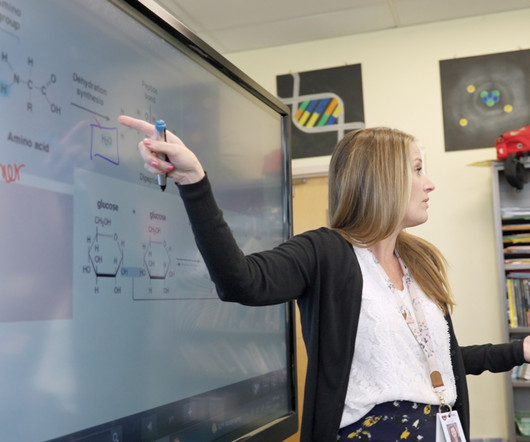
The Hechinger Report
AUGUST 13, 2024
Like many high school chemistry teachers, Angie Hackman instructs students on atoms, matter and, she says, how they “influence the world around us.” But Hackman also has another responsibility in class: developing students’ reading skills. For about 20 of the 80 minutes of almost every class, she engages her chemistry students in literacy skills, she said: closely reading passages from their textbooks, “breaking apart” prefixes and suffixes for relevant vocabulary and identifying root words.

Digital Promise
AUGUST 13, 2024
The post 9 Expert Teachers, Coaches, and Principals Share Their Tips for Successful Collaborative Learning appeared first on Digital Promise.

ED Surge
AUGUST 13, 2024
2023 was the hottest year ever recorded on the planet — by far. More than halfway in, 2024 is on track to exceed it, with June the hottest month on record and July 22 the hottest day. Everyone is feeling it — energy bills are up, social plans are disrupted, sleep and exercise are more elusive. In early care and education, children and caregivers are finding that it’s disrupting their everyday routines and experiences.
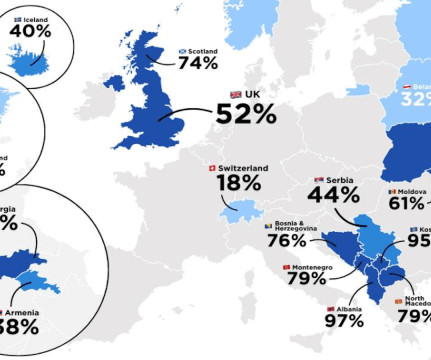
Strange Maps
AUGUST 13, 2024
One of the more unexpected consequences of Brexit, the United Kingdom’s decision to leave the European Union following a 2016 referendum, is that it has made EU membership more popular. The British exit from the EU was the high-water mark of a general distrust, even disgust, experienced by public opinions across many member states towards the bureaucracy in Brussels.

Teaching American History
AUGUST 13, 2024
We were sad to learn last week that Mike Bisenius , a 2022 graduate of the Master of Arts in American History and Government (MAHG) program, has passed away after a brief, intense illness. Mike was a highly dedicated teacher. Last fall we ran a story about Mike, who’d been named 2023 North Dakota History Teacher of the Year by the Gilder Lehrman Foundation.
Social Studies Network brings together the best content for social studies educators from the widest variety of thought leaders.
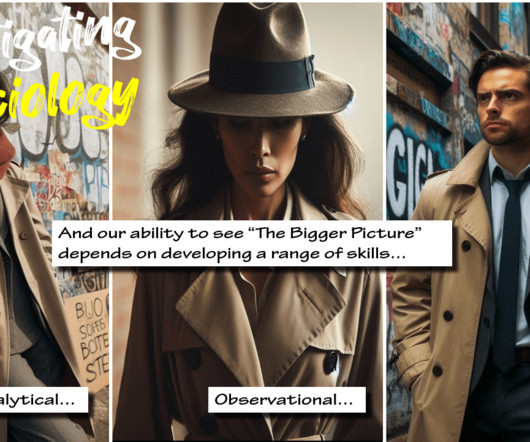
ShortCutsTV
AUGUST 13, 2024
If you’re a teacher looking to spice-up those first Introductory lessons – the ones where you talk your students through “the basics” of Sociology and introduce them to a different way of thinking about the world with the aid of some fascinating-but-strangely-lifeless bullet point slides – you might like to know that I’ve been giving […]
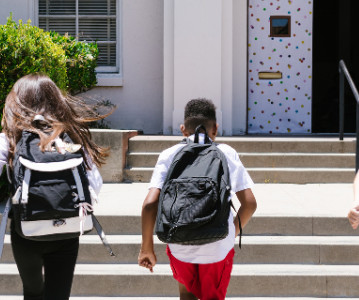
Education Elements
AUGUST 13, 2024
It’s the time of year that we start heading back into our schools and classrooms - some of us are already in school, and some of us are still counting down our last few precious days of summer vacation. Setting the stage for a new school year is crucial, but it can also be a complex undertaking. So we decided to round up some resources to help you start the school year off right!

Education Week - Social Studies
AUGUST 13, 2024
The purpose of civics education must be about more than just getting students to vote.

Heinemann Blog
AUGUST 13, 2024
Nonfiction offers many benefits. Reading nonfiction allows us to access new content, ideas, and perspectives. Nonfiction books support comprehension and the development of critical thinking skills, and they help kids make real-world connections.
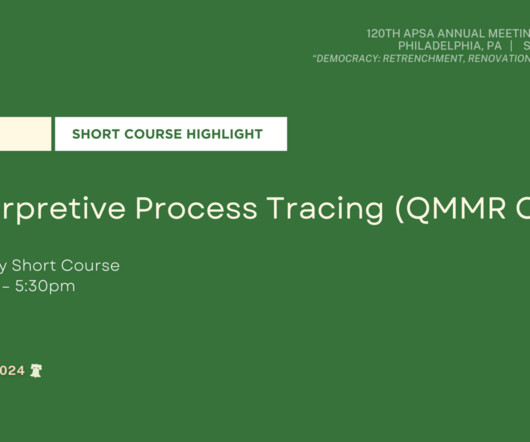
Political Science Now
AUGUST 13, 2024
Interpretive Process Tracing (QMMR C) Half Day Short Course 1:30pm – 5:30pm This short course outlines the logic and best practices of interpretive process tracing, with a particular focus on practice tracing; it provides students with advice and examples to enable them to use this method in their work. The course does not require any prior background in interpretive epistemology or training in interpretive analysis.

Maitri Learning
AUGUST 13, 2024
How do we help young children crack the code of benchmark tests? The fifth step is mastering Nonsense Word Fluency (NWF). In the fifth video of our "Crack the Codes" series, our literacy expert explains why Nonsense Word Fluency is essential for early literacy development. Join us as we explore how the Movable Alphabet becomes a powerful, hands-on tool in the classroom, enabling students to manipulate letters and form consonant-vowel-consonant (CVC) words—even those that are nonsense!

Political Science Now
AUGUST 13, 2024
Project Title: Hum So the Devil Doesn’t Hear You: Rural Black Southern Political Existences as the Otherwise Claire Crawford Claire B. Crawford is an assistant professor of Africana Political Thought in the Department of Politics and International Affairs and the Program in African American Studies at Wake Forest University. She received her Ph.D. in political science and international relations from the University of Southern California.
Let's personalize your content